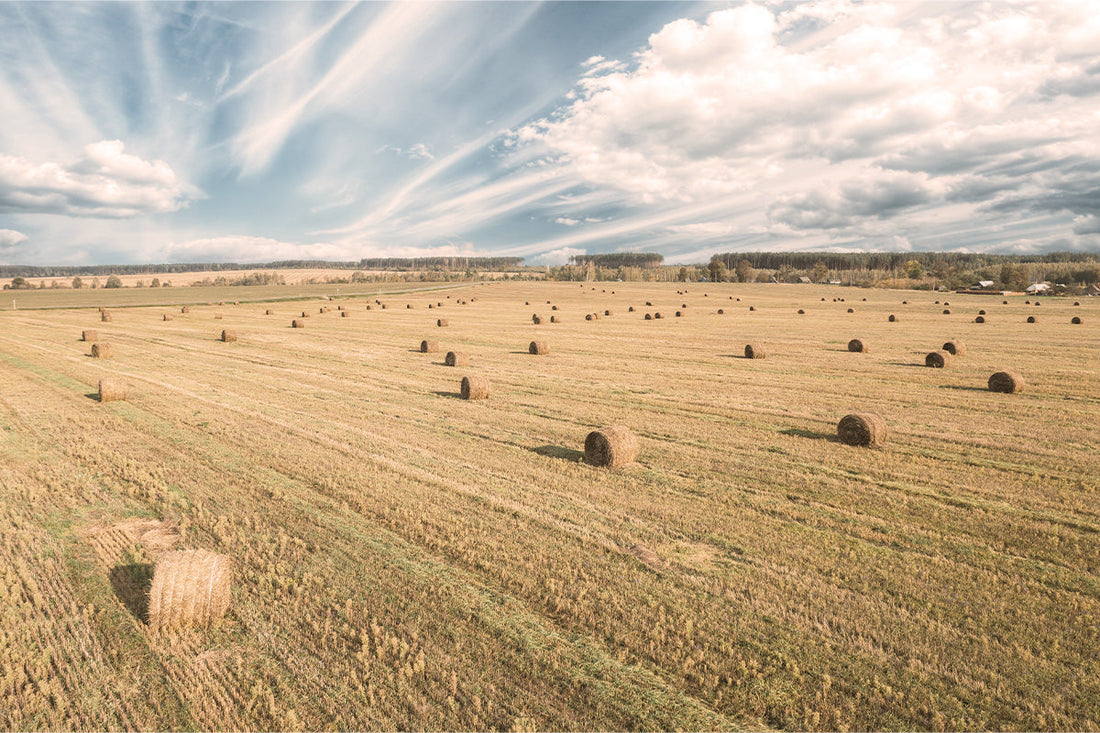
Everything You Need to Know About Alfalfa Pellets and Alfalfa Meal for Horses
Share
If you're in search of a nutritious, high-quality feed for horses and livestock, alfalfa pellets and alfalfa meal are excellent options. Alfalfa pellets, popular among horse owners and farmers alike, offer a concentrated source of nutrients. In this comprehensive guide, we'll cover everything you need to know about alfalfa pellets, their benefits, and how they compare to alfalfa meal.
What Are Alfalfa Pellets?
Alfalfa pellets are made from compressed alfalfa, a nutrient-rich forage crop. Known for its high levels of protein, fiber, and minerals, alfalfa is commonly used to supplement hay or grass-based diets, especially for horses. Medalist alfalfa pellets are specially formulated to provide consistent nutrition, making them ideal for feeding in both stabled and pasture conditions.
Benefits of Alfalfa Pellets for Horses
Alfalfa pellets for horses provide several key advantages:
- High Protein and Fiber: Alfalfa pellets are rich in protein and fiber, promoting muscle development and digestive health.
- Easy to Digest: Pellets are easier to chew and digest than traditional hay, especially beneficial for older horses.
- Controlled Feeding: Alfalfa pellets offer precise portion control, allowing owners to measure each feeding accurately.
What is Alfalfa Meal?
While alfalfa pellets are compressed and easy to feed, alfalfa meal is a finely ground form of alfalfa. It's also a great source of protein and fiber, but its texture is more powder-like, making it ideal for mixing into feed for a smoother consistency. Alfalfa meal can be used as a base in feeds and is often more affordable, which makes it popular for those looking to purchase bulk alfalfa.
Benefits of Alfalfa Meal
Alfalfa meal shares many benefits with alfalfa pellets, including high protein content, fiber, and essential minerals. The finely ground texture of alfalfa meal makes it easy to mix into custom feed blends, ideal for animal owners who prefer to create tailored feed options for livestock. Additionally, it's often available in alfalfa pellets bulk quantities, making it a cost-effective option.
Alfalfa Pellets vs. Traditional Horse Feed
While hay is a staple in equine diets, horse pellets like alfalfa provide a more consistent source of nutrients. Pellets have a lower moisture content than hay, offering a more concentrated source of calories and nutrients. If you're considering switching to alfalfa pellets, it's essential to understand the differences and the specific benefits that pellets offer as a complete horse food option.
One key advantage of alfalfa pellets is their uniformity. Unlike hay, which can vary in quality and nutritional content depending on the growing season, weather, and storage conditions, alfalfa pellets provide a consistent nutrient profile in every serving. This reliability is beneficial for horse owners who need to carefully monitor their animals’ diet for weight management, growth, or performance. Additionally, since alfalfa pellets are compressed and dust-free, they’re a great choice for horses with respiratory sensitivities, providing a safer and cleaner feeding option.
Alfalfa pellets also simplify feed storage and handling. Pellets are compact, easy to stack, and require less storage space than loose hay. They’re less prone to spoilage and easier to measure, ensuring accurate feeding portions. This makes them especially useful for large-scale operations or barns with limited space, as well as for horse owners looking to minimize feed waste. Ultimately, alfalfa pellets offer a convenient, high-quality alternative or supplement to hay, delivering essential nutrients in a way that’s easy to feed, store, and manage.
How to Incorporate Alfalfa Pellets into Your Horse's Diet
Alfalfa pellets are versatile and can be fed alone or as a supplement to a regular hay diet. When incorporating them, it's essential to transition slowly to avoid digestive upset. Start by adding small amounts and gradually increase over a few days. Most horses respond well to alfalfa pellets, but portion control is essential to avoid overfeeding. It is generally recommended to feed horses 1-2% of their body weight in pellets per day to replace hay.
Considerations When Feeding Alfalfa Pellets
While alfalfa pellets are safe and nutritious, here are a few tips for feeding them effectively:
- Check the Pellet Size: Larger pellets can slow down feeding and prevent gulping, which is ideal for horses that tend to eat too quickly.
- Monitor Intake: Alfalfa pellets are nutrient-dense, so be mindful of portion sizes.
- Offer Fresh Water: Alfalfa pellets require plenty of fresh water to aid digestion, as they expand slightly when wet.
Why Buy Alfalfa Pellets in Bulk?
Buying bulk alfalfa pellets can be a cost-effective option, especially for farms with multiple animals. Purchasing in larger quantities ensures you have a steady supply, often at a lower cost per pound. Medalist Feed offers bulk purchasing options, allowing you to maintain quality feed without frequent reordering.
Why Choose Medalist Feed for Alfalfa Products?
Medalist Feed is dedicated to delivering high-quality, nutritious feed options. Our alfalfa pellets and alfalfa meal are sourced from top-quality alfalfa, ensuring the best nutrition for your horses and livestock. With convenient options for bulk purchases and a commitment to sustainable farming practices, Medalist Feed is a trusted choice for alfalfa-based feed.
Conclusion
Whether you're looking to enhance your horse's diet or provide consistent, high-quality nutrition for livestock, alfalfa pellets and alfalfa meal are versatile, nutrient-rich options. With high levels of protein and fiber, these feeds promote health, growth, and overall well-being. Check out our alfalfa pellets and alfalfa meal today, and discover the difference quality feed can make in your animals' health.


2 comments
We ship nationwide, so you’ll be able to receive it in California. Check it out here:
https://www.medalistfeed.com/products/alfalfa-meal?variant=48996122427682
As for the ingredients—our alfalfa meal is 100% pure, with no additives or mixing agents, including molasses. It’s pesticide-free and packed with essential nutrients to enrich both soil and animal feed.
Where can I purchase Alfalfs Meal. I live in CA. Is your alfalfa meal mixed in with molasses? Thanks for your time.